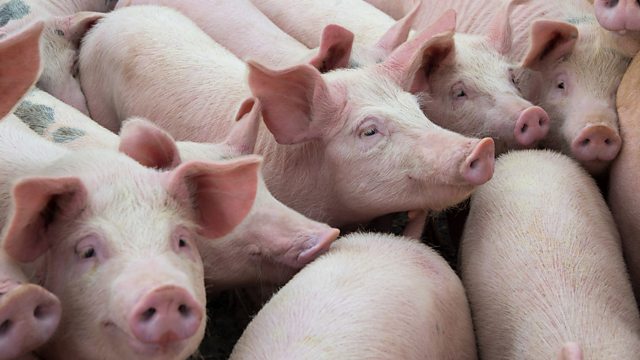Could genetically modified pigs solve India's organ shortage?
India performs the second highest number of transplants of any country in the world, after the USA. But with a population of 1.4 billion, demand far outstrips supply.
There is a shortage of human organ donors, and people can die waiting for hearts, lungs and kidneys. However, recent successes transplanting pig organs into people and avances in the genetic engineering that makes 'xenotransplantation' possible, mean that, potentially, genetically modified pigs could be the solution to the shortage of donors.
India performs the second highest number of transplants of any country in the world, after the USA. But with a population of 1.4 billion, demand far outstrips supply. Dr Devagourou Velayoudam, cardiac transplant surgeon in Delhi, explains the huge shortage of organs compared to European countries - for instance, in Spain, there are 50 organ donors per million people; in India - less than one. He says that cultural and religious factors are not an issue, as pig valves have been used for operations in India for some time now. Nadey Hakim, professor of transplantation surgery at Imperial College London, goes on to explain the current infrastructure challenges of organ transplants in Nigeria, and says if those can be overcome, and the prices of transplant organs reduced, the recent breakthroughs could prove beneficial.
Photo: A group of pigs at a farm in Europe Credit: Getty Images
Duration:
This clip is from
More clips from Health Check
-
![]()
The mental health impact of abortion restrictions
Duration: 04:53
-
![]()
Doctor turned author on writing his memoir
Duration: 02:52
-
![]()
Covid: 'I've been shielding from my family for almost 2 years'
Duration: 06:26
-
![]()
Long Covid: What we do and don't know
Duration: 08:49






